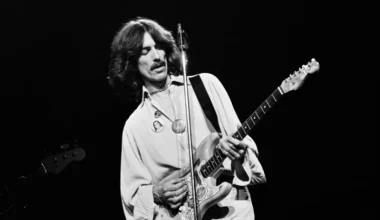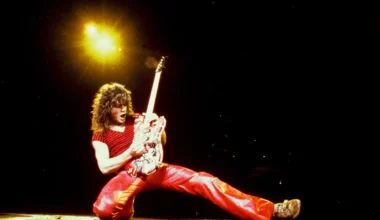The Rolling Stones are undoubtedly one of the most legendary names in classic rock. As the 1960s gave way to a new decade, the world mourned the absence of The Beatles, leaving a musical void to fill. In this musical vacuum, The Rolling Stones stepped up to claim the title of the world’s biggest band. With albums like “Sticky Fingers” and Keith Richards’s masterpiece “Exile on Main St.,” they hit it out of the park and solidified their legendary status.
Throughout the 1960s, The Rolling Stones evolved from their early sound rooted in classic rhythm and blues. While they embraced a more pop-oriented approach, Brian Jones wasn’t entirely pleased with the shift. However, one thing remained constant – Keith Richards’ commitment to the traditional blues. He continued to fill his style with classic blues riffs and embellishments, ensuring a connection to their musical roots.
Keith Richards, often hailed as British rock’s quintessential guitarist, drew inspiration from a range of legendary players over his seven-decade career. But it all began with Chuck Berry. Richards once expressed, “When I started, all I wanted to do was play like Chuck. I thought if I could do that, I’d be the happiest man in the world.”
In a conversation with Rolling Stone, Richards reminisced about seeing Chuck Berry in the 1959 film “Jazz on a Summer’s Day.” He was struck by how Berry played against the grain with a group of jazz musicians. While these jazz artists were brilliant, they had an air of jazz attitude about the emerging rock and roll genre. Yet, Chuck Berry, with tracks like “Sweet Little Sixteen,” defied their skepticism and took the music world by storm. For Richards, this embodiment of playing against the odds was quintessential blues.
To Keith Richards, this was what blues was all about – the attitude and guts it took to challenge the norm. It was this spirit that he aspired to embody.
In the same interview, Richards acknowledged the influence of several other guitarists who passed on the “it” factor. He absorbed the essence of Chuck Berry, who, in turn, drew inspiration from T-Bone Walker. The blues lineage continued through Muddy Waters, with whom Keith had the privilege to play, along with Elmore James and B.B. King. These musicians formed an ancestral chain of blues artists, all passing on their legacy.
Beyond these blues innovators, Keith Richards held Elvis Presley’s guitarist, Scotty Moore, in high regard as an unsung hero. Furthermore, Moore was Richards’ hero, and he praised Moore’s unique style. Moore’s playing combined elements of jazz, great country licks, and a deep grounding in the blues. Also, it was a distinctive blend that has never been replicated.
Scotty Moore was not only a remarkable guitarist but also a gentle and unassuming individual, known for his love of scotch. Keith Richards fondly recalled an unforgettable 1996 session in Woodstock, where he, Levon Helm, Scotty Moore, and Elvis’s drummer D.J. Fontana collaborated.
Additionally, playing alongside his musical heroes became a familiar and cherished experience for Keith Richards. He reminisced about playing with Little Richard in a dressing room at the age of 19, thinking that it was already a remarkable achievement. However, his collaboration with the likes of Scotty Moore in the session at Levon Helm’s barn was the pinnacle. It was a gathering of legendary musicians, marked by the flowing whiskey and a profound sense of musical camaraderie.
In Keith Richards’ eyes, there will never be another Scotty Moore, and his legacy continues to inspire and shape the world of rock and blues music.








